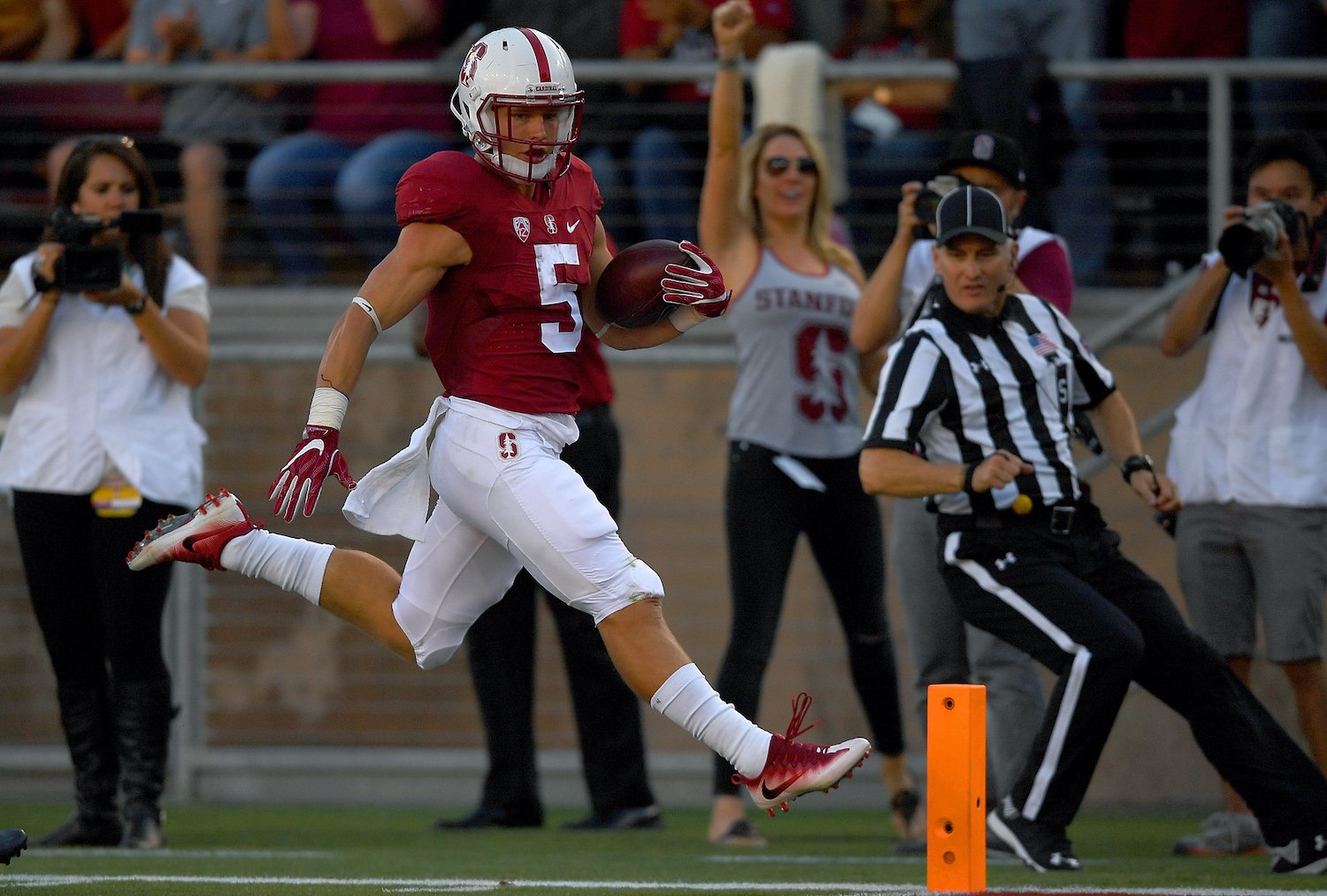
Stanford star running back Christian McCaffrey announced on Monday that to prepare for the NFL draft he would not join his team to play in the Sun Bowl against North Carolina.
“Very tough decision, but I have decided not to play in the Sun Bowl so I can begin my draft prep immediately,” McCaffrey said. He also thanked his teammates for their support.
McCaffrey, a junior, is one of the most electrifying players in college football. He finished second in Heisman voting last season, and this year he racked up 1,603 yards and 13 touchdowns. He’s also a skilled receiver out of the backfield and a dangerous punt returner. According to ESPN’s projections, he’s expected to be a late first-round draft pick.
— Christian McCaffrey (@CMccaffrey5) December 19, 2016
McCaffrey’s decision to forgo his team’s bowl game marks the second time in the past week in which a star running back has made this decision. Last week, LSU star running back Leonard Fournette announced he would do the same.
Though fans of Stanford and LSU will assuredly be disappointed to miss their best players in the final game of the season, both McCaffrey and Fournette are set to earn millions in the coming months between endorsement deals and their first professional contracts — an injury in a meaningless bowl game (neither player’s team is in the playoff) could put that in jeopardy.
And while players have rarely skipped bowl games, coaches who have taken a new job for the coming season often leave before the bowl game to begin preparations.
Still, Fournette and McCaffrey could be setting a precedent that may ultimately bring down the quality of play in bowl games if more players headed to the NFL Combine decide that there’s too much (money) on the line down the road to play in the San Diego County Credit Union Poinsettia Bowl, for example.
The issue could make its way into the larger debate over whether the NCAA should pay players in the revenue-generating sports. In a paid system, a player who misses his team’s bowl game so as to avoid injury before the draft could be penalized by the NCAA or his school.













